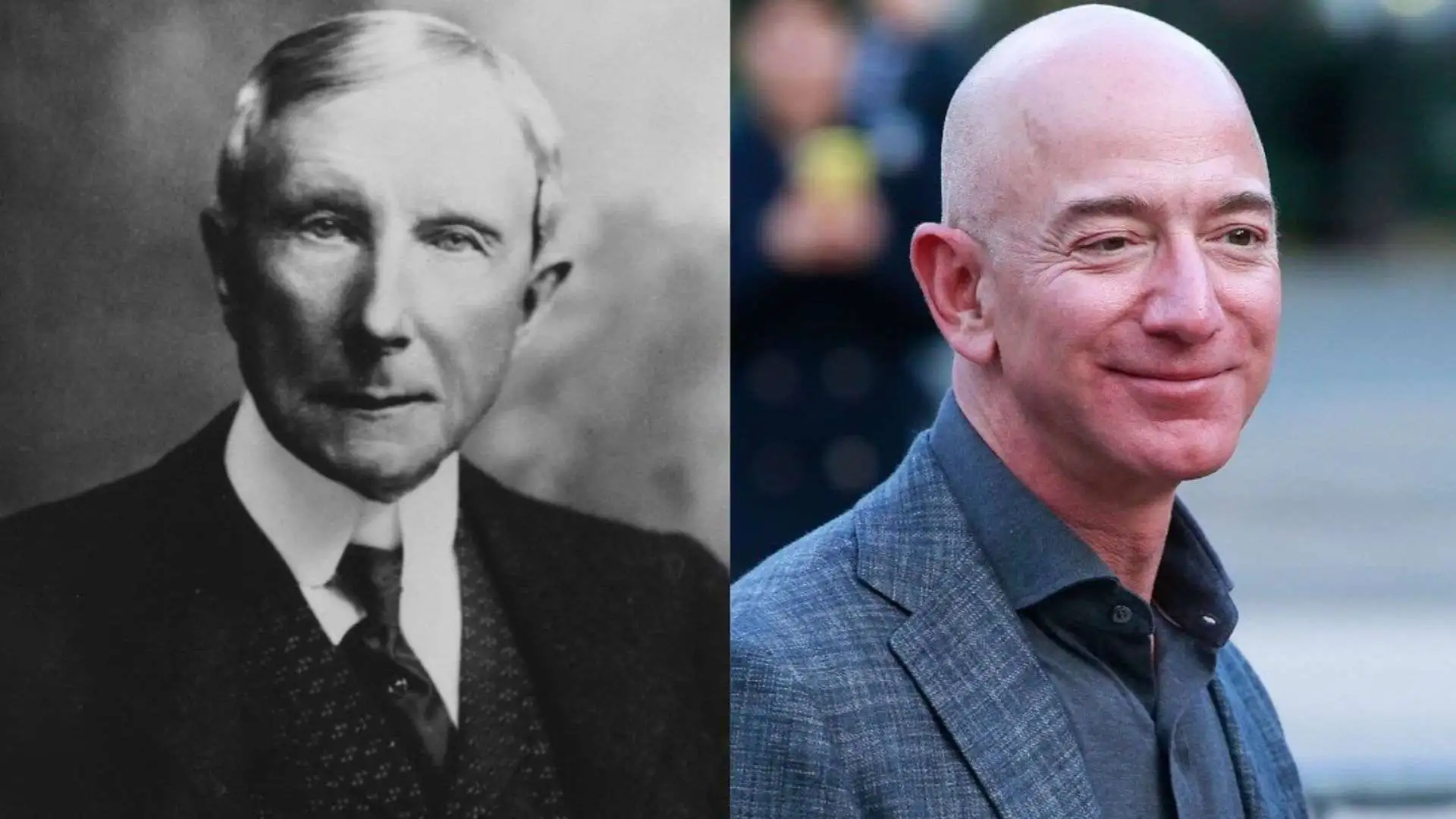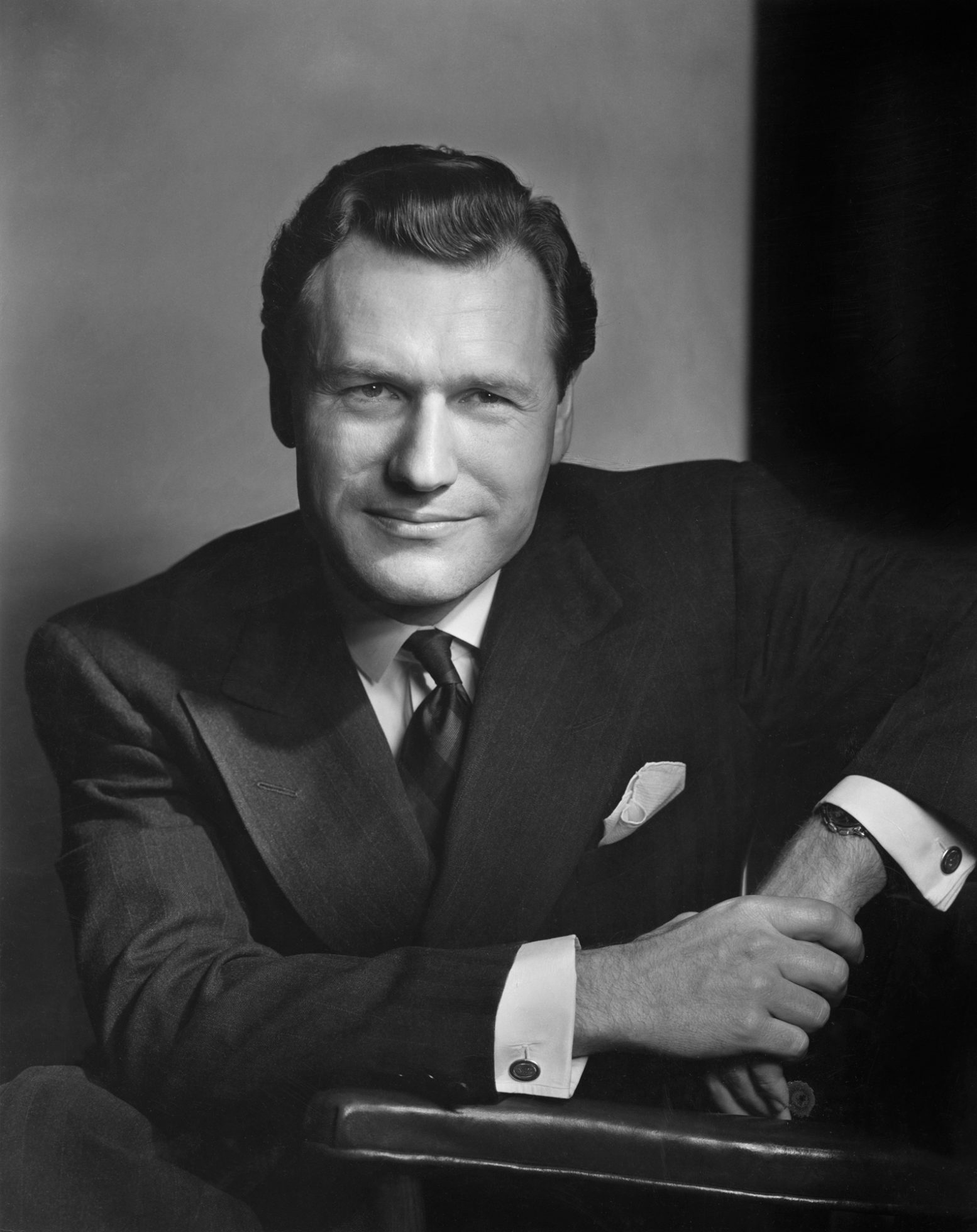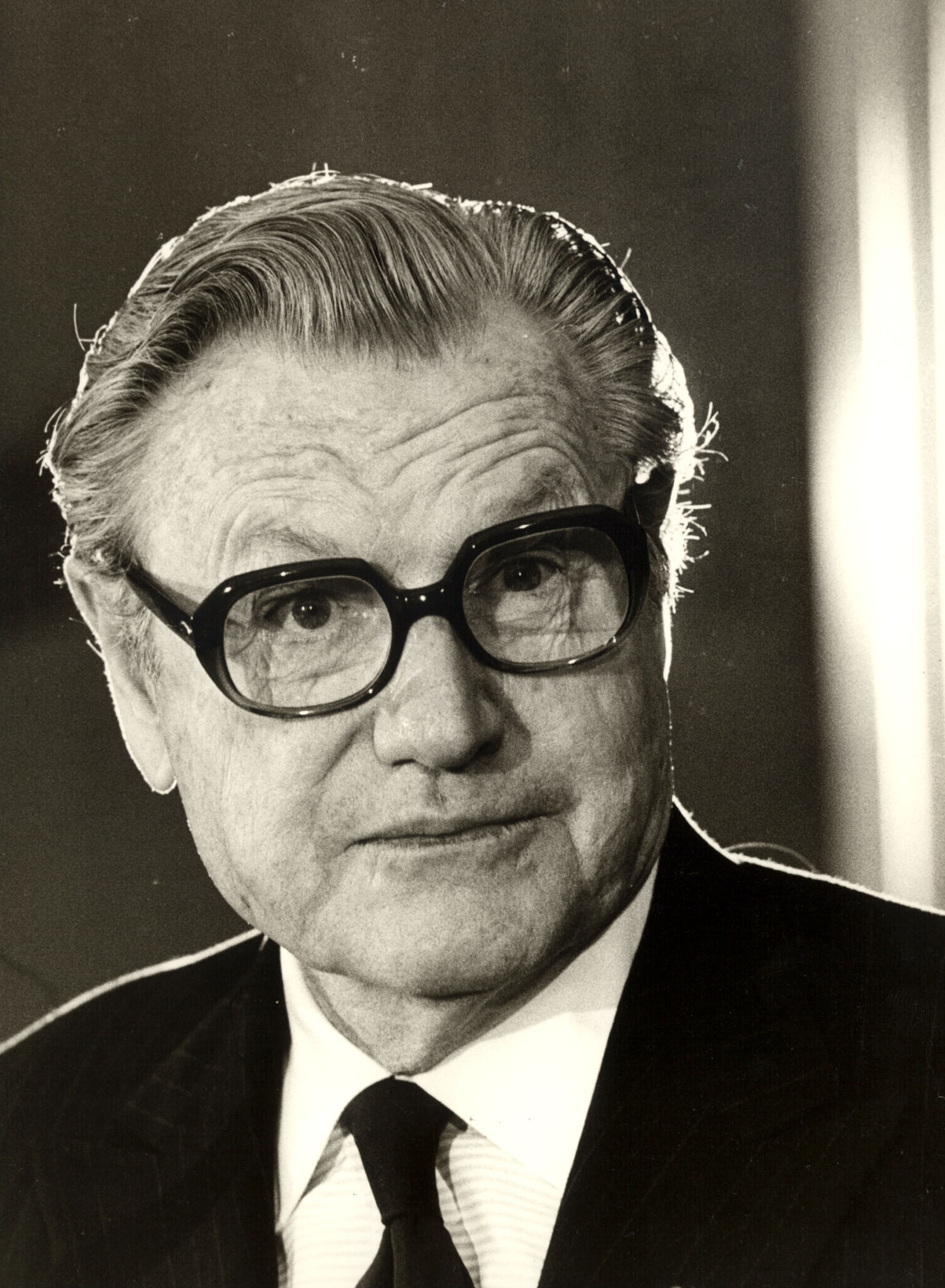Exploring Nelson Rockefeller's Financial Standing In 1974
Have you ever wondered about the sheer scale of wealth held by some of history's most prominent figures? It's a question that often sparks curiosity, especially when we consider individuals whose names are practically synonymous with vast fortunes. One such name, of course, is Rockefeller, and today, we're going to talk about Nelson Rockefeller's financial situation, specifically focusing on his net worth around 1974. It's a fascinating subject, really, because it touches upon not just personal wealth but also the immense legacy of an entire family.
Figuring out an exact number for someone's personal wealth from decades ago, particularly for someone like Nelson Rockefeller, can be quite a puzzle. His fortune wasn't just in a simple bank account; it was tied up in complex family trusts, investments, and a legacy that stretched back generations to Standard Oil. So, in a way, pinning down a precise figure for his net worth in 1974 means looking beyond just the cash he might have had on hand.
This article aims to shed some light on what Nelson Rockefeller's financial picture might have looked like during that specific year. We'll explore the sources of his wealth, the challenges of estimating it, and how his personal finances intertwined with his public life. It's an interesting journey, you know, looking back at how such significant wealth operated within the economic landscape of the mid-1970s.
Please note: The "My text" provided for this article primarily references Nelson Mandela, Nelson manufacturing, and Nelson shoe stores. It does not contain information about Nelson Rockefeller or his net worth. Therefore, the content below is based on general historical knowledge about Nelson Rockefeller and the Rockefeller family fortune.
Table of Contents
- A Life of Influence: Who Was Nelson Rockefeller?
- The Question of Wealth: Nelson Rockefeller Net Worth 1974
- The Rockefeller Fortune: A Legacy Beyond Numbers
- Understanding Wealth in the Mid-1970s
- What Made the Rockefeller Fortune So Vast?
- Impact and Influence
- Addressing Common Questions
A Life of Influence: Who Was Nelson Rockefeller?
Nelson Aldrich Rockefeller was, you know, a really significant figure in American politics and business. Born into one of the wealthiest families in the world, his life was marked by a unique blend of public service and private enterprise. He served as the 49th Governor of New York for four terms and, perhaps most notably, as the 41st Vice President of the United States under President Gerald Ford. His journey from a scion of industry to a national political leader is quite a story, actually.
Early Years and Family Roots
Born on July 8, 1908, in Bar Harbor, Maine, Nelson was one of six children of John D. Rockefeller Jr. and Abby Aldrich Rockefeller. His grandfather, John D. Rockefeller Sr., had founded Standard Oil, creating an unprecedented fortune that would shape the family's destiny for generations. This background, you see, provided Nelson with an extraordinary foundation, not just financially, but also in terms of connections and opportunities. He grew up surrounded by immense privilege, but also with a strong sense of public duty, which was a core value instilled by his parents. This upbringing, in a way, set the stage for his future endeavors.
Personal Details and Bio Data of Nelson Rockefeller
| Full Name | Nelson Aldrich Rockefeller |
| Born | July 8, 1908 |
| Birthplace | Bar Harbor, Maine, U.S. |
| Died | January 26, 1979 (aged 70) |
| Cause of Death | Heart attack |
| Father | John D. Rockefeller Jr. |
| Mother | Abby Aldrich Rockefeller |
| Grandfather | John D. Rockefeller Sr. |
| Spouses | Mary Todhunter Clark (m. 1930; div. 1962), Happy Fitler (m. 1963) |
| Children | Rodman, Ann, Steven, Michael, Mary, Nelson Jr., Mark |
| Education | Dartmouth College (A.B.) |
| Political Party | Republican |
| Public Offices Held | Governor of New York (1959–1973), Vice President of the United States (1974–1977) |
| Primary Source of Family Wealth | Standard Oil |
The Question of Wealth: Nelson Rockefeller Net Worth 1974
When we try to pin down Nelson Rockefeller's net worth in 1974, it's really more complicated than just looking up a number. His personal fortune was deeply intertwined with the vast Rockefeller family trusts, which had been set up generations before. These trusts were designed to preserve and grow the family's immense wealth, making it difficult to separate an individual's "personal" net worth from the collective family assets. So, in some respects, his wealth wasn't just a simple sum.
Estimates vary widely, and it's important to remember that these are just that—estimates. Some reports from the time, like those published by the *New York Times*, suggested his personal fortune was in the range of tens of millions, perhaps even hundreds of millions, of dollars. However, this often didn't fully capture the value of his beneficial interest in the various family trusts and foundations. For instance, his art collection alone was worth a fortune, and that was just one piece of the puzzle, you know.
In 1974, Nelson Rockefeller was in the process of becoming Vice President, a role that brought his finances under intense scrutiny. During his confirmation hearings, he disclosed assets that were valued at around $62 million, which, at the time, was an astonishing amount for a public official. This figure included various investments, real estate, and his famous art collection. However, it's widely understood that this public disclosure didn't fully represent the total scope of his access to or influence over the broader Rockefeller family fortune. It was, arguably, just a glimpse.
The true scale of his wealth, therefore, was likely much higher if you consider his share of the family's collective holdings. These holdings included significant investments in various industries, vast real estate portfolios, and a network of philanthropic foundations. So, while $62 million was the publicly stated figure, it's fair to say his financial power and access to resources were far, far greater. It's almost like trying to measure the tip of an iceberg, when the real mass is hidden below the surface, you know.
The Rockefeller Fortune: A Legacy Beyond Numbers
The Rockefeller fortune wasn't just about money; it was about influence, institutions, and a lasting legacy that shaped American society and beyond. The wealth generated by John D. Rockefeller Sr. through Standard Oil was meticulously managed and diversified over the decades, ensuring its endurance. This meant that by 1974, the family's financial footprint was absolutely massive, touching almost every part of the economy and public life, so it's a very big picture.
Standard Oil's Enduring Impact
The dissolution of Standard Oil in 1911, while breaking up the monopoly, actually made the Rockefeller family even wealthier. The individual companies that emerged, like Exxon, Mobil, Chevron, and others, grew significantly in value over the years. The family maintained substantial holdings in these successor companies, meaning their wealth continued to expand with the growth of the oil industry. This historical foundation is, quite literally, what built the family's financial empire, and it just kept growing, you know.
Philanthropy and Public Service
A significant portion of the Rockefeller fortune was channeled into philanthropy, establishing institutions that are still incredibly important today. The Rockefeller Foundation, the University of Chicago, and Rockefeller University are just a few examples of the family's commitment to public good. Nelson Rockefeller himself was deeply involved in these philanthropic efforts, overseeing and contributing to numerous cultural and educational initiatives. This dedication to giving back was, in a way, as much a part of the family's identity as their wealth itself, which is interesting to think about.
Understanding Wealth in the Mid-1970s
To truly grasp Nelson Rockefeller's net worth in 1974, it helps to consider the economic climate of the time. The mid-1970s were a period of significant economic turbulence in the United States. There was a major energy crisis, largely triggered by the 1973 oil embargo, which led to soaring oil prices and widespread inflation. This economic environment affected everything, from the cost of living to the value of investments. So, the context of 1974 is, you know, quite important.
Inflation was running high, meaning that a dollar in 1974 had significantly more purchasing power than it does today. For example, what cost $1 in 1974 would cost around $6.20 in 2024, according to the Consumer Price Index. This means that Nelson Rockefeller's reported $62 million in assets would be worth over $380 million in today's money, just from inflation alone. That's a very substantial sum, even without considering the growth of the underlying assets over time. It's really quite a lot, actually.
Moreover, the concept of "net worth" for ultra-wealthy individuals like Rockefeller was often less about liquid cash and more about the value of their holdings in trusts, real estate, art, and other illiquid assets. These assets might not have been easily convertible to cash, but they represented immense financial power and security. The way wealth was perceived and managed back then was, in some respects, different from how we think about it now, which is something to keep in mind.
What Made the Rockefeller Fortune So Vast?
The sheer size of the Rockefeller fortune, which Nelson Rockefeller benefited from, wasn't just a matter of good investments; it was built on a foundation of strategic planning and diversification over many decades. The family's wealth management was, you know, incredibly sophisticated, allowing it to grow and adapt through various economic shifts. It's pretty impressive, really, how they managed it all.
From Oil to Diversified Holdings
While Standard Oil was the original source of the wealth, the Rockefeller family didn't keep all their eggs in one basket. They smartly diversified their investments into a wide range of industries, including real estate, banking, and other emerging sectors. This diversification protected their fortune from the ups and downs of any single industry and allowed for consistent growth. This approach was, basically, a cornerstone of their long-term financial success, and it's a strategy that still holds true today.
The Power of Trusts
A crucial element in the preservation and growth of the Rockefeller fortune was the extensive use of trusts. These legal structures allowed the family to manage their assets collectively, minimize taxes, and ensure that the wealth would be passed down through generations. Nelson Rockefeller, like other family members, was a beneficiary of these trusts, which provided him with significant income and access to capital, even if he didn't directly "own" all the assets in the traditional sense. These trusts were, essentially, the backbone of the family's enduring financial strength, and they're very complex, you know.
Impact and Influence
Nelson Rockefeller's wealth wasn't just a personal matter; it deeply influenced his public and political life. His financial independence meant he could pursue political office without needing to rely on external funding in the same way many other politicians do. This freedom, in a way, gave him a unique position in American politics, allowing him to focus on policy and public service without the usual financial constraints. It's a rather interesting dynamic, when you think about it.
Political Career and Financial Independence
His wealth certainly allowed Nelson Rockefeller to self-fund many of his political campaigns, especially during his long tenure as Governor of New York. This financial autonomy meant he was less beholden to special interests or party donors, giving him a greater degree of independence in his decision-making. It's fair to say that his financial background played a significant role in shaping his political career, offering him opportunities and flexibility that others simply didn't have. He could, basically, operate on his own terms, which is quite a luxury in politics.
Shaping American Life
Beyond politics, Nelson Rockefeller used his resources and influence to support various cultural, artistic, and scientific endeavors. He was a passionate art collector, and his collection became a significant part of the family's legacy. He also played a key role in the development of institutions like the Museum of Modern Art (MoMA), which his mother co-founded. His contributions extended to urban planning and international development, too. So, his wealth wasn't just accumulated; it was, you know, actively deployed to shape many aspects of American life and culture, which is pretty remarkable.
For more details on the Rockefeller family's extensive history and impact, you might find information on the Rockefeller Archive Center to be quite insightful.
Addressing Common Questions
People often have a lot of questions about the Rockefeller family's wealth, and Nelson Rockefeller's place within it. Here are a few common ones that often come up, and we'll try to shed some light on them.
How did Nelson Rockefeller acquire his wealth?
Nelson Rockefeller's wealth primarily came from his inheritance as a grandson of John D. Rockefeller Sr., the founder of Standard Oil. This fortune was managed through complex family trusts and investments that diversified over generations. He didn't, you know, build it from scratch himself, but rather inherited a share of one of the world's largest fortunes. He did, however, manage his own investments and financial affairs, adding to his personal portion of the family's overall wealth, which is an important distinction, you know.
Was Nelson Rockefeller the richest man in the world in 1974?
No, Nelson Rockefeller was certainly not the richest man in the world in 1974. While he was incredibly wealthy and part of one of the richest families, his personal net worth, even considering his access to family trusts, did not approach the top individual fortunes globally at that time. The Rockefeller family's collective wealth was immense, but it was distributed among many family members and foundations. So, it's a bit like saying a large pie is rich, but each slice is only a part of it, you know.
How does Nelson Rockefeller's 1974 net worth compare to today's billionaires?
Comparing Nelson Rockefeller's 1974 net worth to today's billionaires is tricky because of inflation and the changing nature of wealth. His publicly disclosed assets of $62 million in 1974 would be worth over $380 million today due to inflation alone. However, today's billionaires often have fortunes in the tens or even hundreds of billions of dollars. So, while Nelson Rockefeller was exceptionally wealthy for his time, his personal fortune, as publicly known, would be considered substantial but not among the very top tier of today's richest individuals. It's a very different scale, basically, when you look at it that way.
To learn more about the broader economic context of the 1970s and how it shaped financial landscapes, you might find some interesting information if you explore more about economic history on our site. And for a deeper understanding of historical figures and their impact, you could also check out this page for more biographical insights.
So, when we look back at Nelson Rockefeller's net worth in 1974, it's clear that it was a significant sum, reflecting his place within an incredibly wealthy and influential family. His personal financial disclosures, while substantial, only told part of the story of his access to and influence over the vast Rockefeller fortune. This wealth allowed him a unique position in public life, giving him a certain independence as he pursued his political career and supported numerous philanthropic and cultural initiatives. It's a complex picture, really, of money, power, and legacy, all woven together in the fabric of American history, and it's quite a story to consider, you know.

The Staggering Net Worth of the Rockefeller Dynasty

Nelson Rockefeller – Yousuf Karsh

Nelson Rockefeller Net Worth - Wiki, Age, Weight and Height